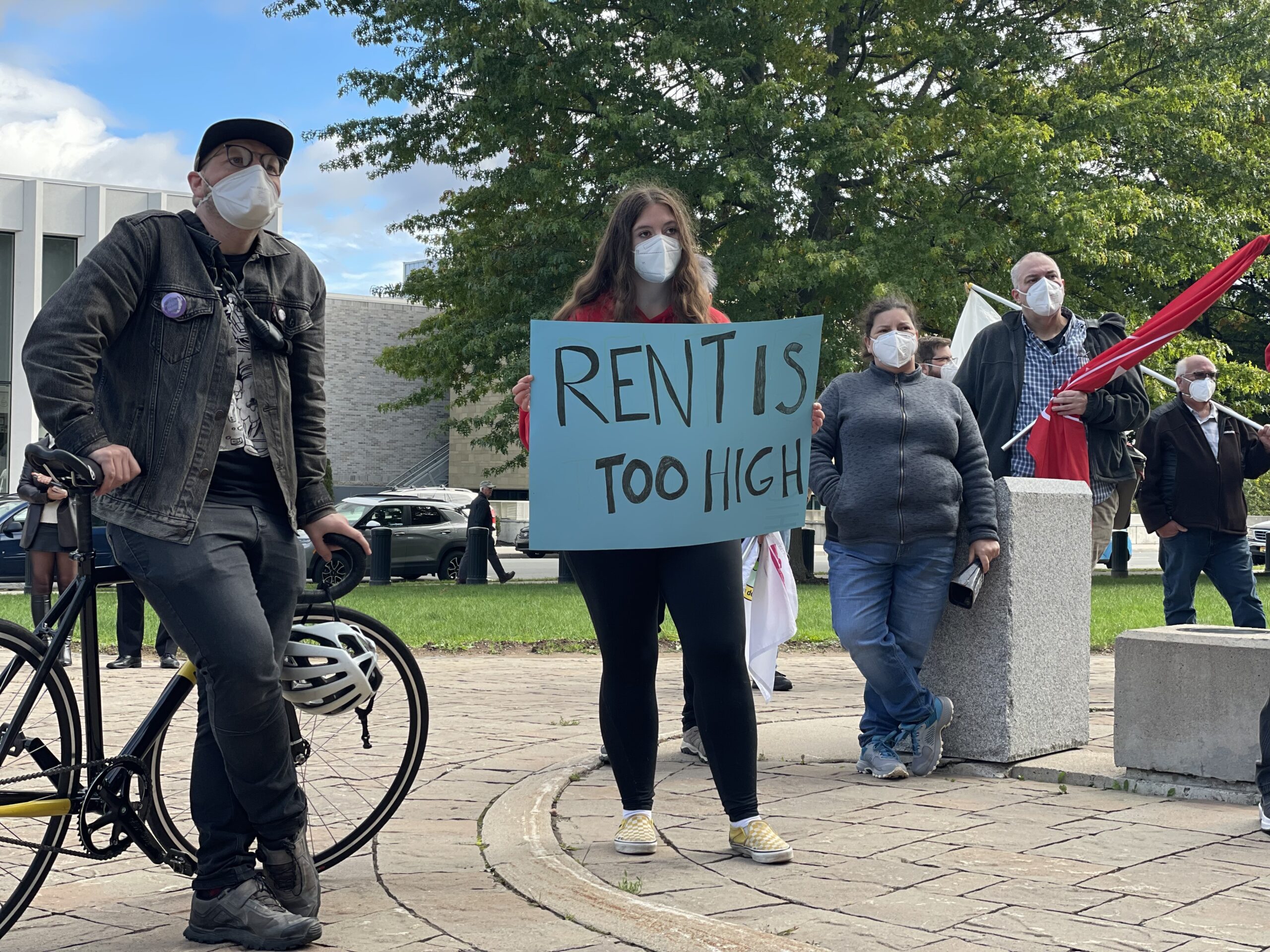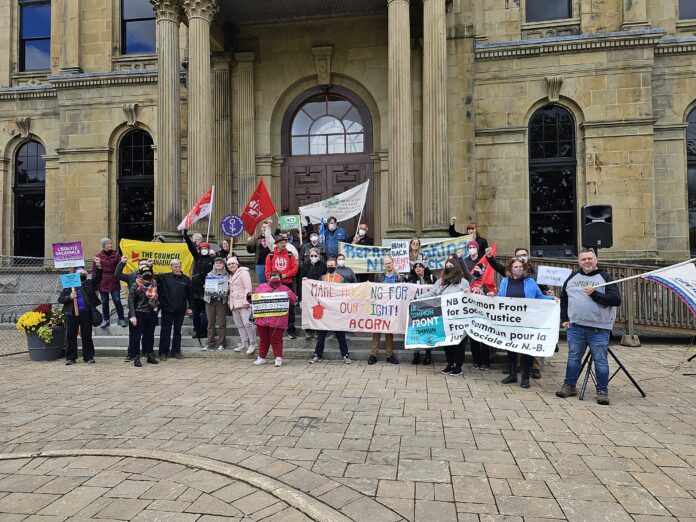On Oct. 17, three N.B. advocacy groups joined in front of the legislature in Fredericton to demand an end to poverty, housing insecurity and ableism.
The New Brunswick’s Common Front for Social Justice (CFSJ), ACORN and Coalition of Persons with Disabilities (NBCPD) made their demands on the national day of the eradication of poverty and the day of the provincial government’s throne speech.
The crowd numbered roughly 75 people, including Robert MacKay, community co-chair for the CFSJ. MacKay said he has lived in poverty for a good part of his life and believes “New Brunswickers living in poverty are facing an emergency.”
MacKay said that this is a yearly event that usually takes place in Moncton, but because of its timing, they changed it to take place in Fredericton this year.
“In a time when New Brunswick has a billion-dollar surplus and so many problems with regard to high inflation and poverty, somebody had to be up there and we were there loud and proud,” said Mackay.
The Common Front and other advocacy groups have talked with the provincial government prior to the march. NBCPD met with Blaine Higgs in April 2022 to ask how they are supposed to live on the country’s lowest social assistance — the premier said he didn’t know.
For a single employable person social assistance rates in the province are two-thirds below the poverty line.
This same single employable person receives a fractional amount compared to our neighbouring province, Prince Edward Island.
“In P.E.I., the very same person who in New Brunswick would get $8,031 annually in their welfare and federal tax credits … you go across the Northumberland Strait and those people are making close to $17,000,” said MacKay. “You tell me that New Brunswick is not killing people.”
MacKay said that of the demands his organization made on Oct. 17, getting social assistance to the poverty line is of utmost importance.
“We believe this is life and death for people. Money equals life and lack of money equals death. It’s almost that simple.”
According to the Maytree Report, the same single employable person is $16,365 below the official Canadian poverty line. This amount is more concerning for those with disabilities as the poverty line doesn’t factor in the additional costs of living.
 Shelley Petit, chair of the NBCPD, echoes MacKay’s concerns for the 26.7 per cent of New Brunswickers with disabilities — including herself.
Shelley Petit, chair of the NBCPD, echoes MacKay’s concerns for the 26.7 per cent of New Brunswickers with disabilities — including herself.
“When you cannot work because of your illness and they expect you to live on a max of $866 a month. That’s ridiculous. Especially when they know it’s 30 to 40 per cent more expensive to live with a disability,” said Petit.
According to Statistics Canada, people with disabilities make up 41 per cent of the low-income population, compared to 18 per cent of non-low-income population, meaning that having a disability is a significant factor that increases the risk of low income.
Petit was a teacher in Saint John before she became disabled in 2019. She suffers from Multiple Chemical Sensitivities and turned to the coalition for support before becoming the chair.
“I cannot leave my house without a gas mask on because … so much stuff in society has a smell or chemical that can kill me,” she said.
Petit hopes that the new federal Canadian disability benefit will come into effect in 2025 and help bring people closer to the poverty line.
MacKay has had his own meetings with the provincial government to bring awareness to the state of poverty in the province. He said he has met with Jill Green, Minister of Social Development.
“We needed to educate the minister and her people so that they would understand the linkage and then they will realize that now they’re killing people intentionally going forward,” said MacKay.
MacKay is hopeful that in the next provincial budget social assistance rates will see a 25 per cent increase across the board.

